BMW X1 vs BYD Sealion 7 – Which car suits you better?
Costs and Efficiency:
Price and efficiency are key factors when choosing a car – and this is often where the real differences emerge.
BMW X1 has a slightly advantage in terms of price – it starts at 38200 £, while the BYD Sealion 7 costs 42800 £. That’s a price difference of around 4620 £.
As for range, the BYD Sealion 7 performs significantly better – achieving up to 502 km, about 421 km more than the BMW X1.
Engine and Performance:
Under the bonnet, it becomes clear which model is tuned for sportiness and which one takes the lead when you hit the accelerator.
When it comes to engine power, the BYD Sealion 7 has a distinct edge – offering 530 HP compared to 326 HP. That’s roughly 204 HP more horsepower.
In acceleration from 0 to 100 km/h, the BYD Sealion 7 is noticeable quicker – completing the sprint in 4.50 s, while the BMW X1 takes 5.40 s. That’s about 0.90 s faster.
In terms of top speed, the BMW X1 performs a bit better – reaching 250 km/h, while the BYD Sealion 7 tops out at 215 km/h. The difference is around 35 km/h.
There’s also a difference in torque: BYD Sealion 7 pulls clearly perceptible stronger with 690 Nm compared to 477 Nm. That’s about 213 Nm difference.
Space and Everyday Use:
Whether family car or daily driver – which one offers more room, flexibility and comfort?
Both vehicles offer seating for 5 people.
In curb weight, BMW X1 is significantly lighter – 1575 kg compared to 2225 kg. The difference is around 650 kg.
In terms of boot space, the BMW X1 offers minimal more room – 540 L compared to 520 L. That’s a difference of about 20 L.
In maximum load capacity, the BYD Sealion 7 performs a bit better – up to 1789 L, which is about 189 L more than the BMW X1.
When it comes to payload, BMW X1 somewhat takes the win – 500 kg compared to 410 kg. That’s a difference of about 90 kg.
Who wins the race?
The BYD Sealion 7 proves to be wins the duel decisively and therefore becomes our DriveDuel Champion!
BYD Sealion 7 is the better all-rounder in this comparison.
Costs and Consumption
View detailed analysis
Engine and Performance
View detailed analysis
Dimensions and Body
View detailed analysis
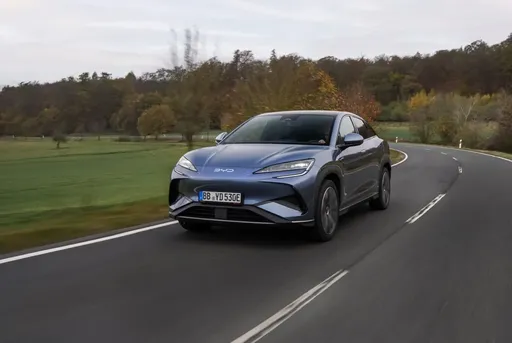 @ BYD Auto / BYD Global Media
@ BYD Auto / BYD Global Media
BYD Sealion 7
BMW X1
The BMW X1 brings a premium feel to compact crossover life, wrapping practical space and agile handling into a tidy, upscale package. It’s ideal for buyers who want BMW driving dynamics without the bulk, offering everyday comfort and a few clever tricks to keep the commute interesting.
details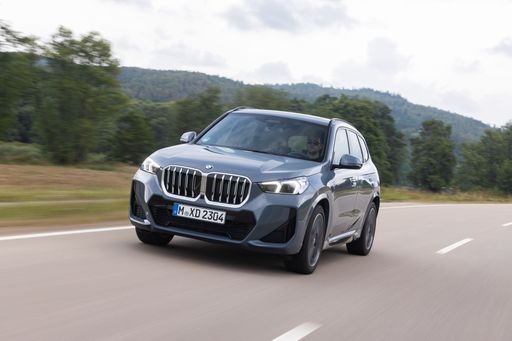 @ BMW Group Press
@ BMW Group Press
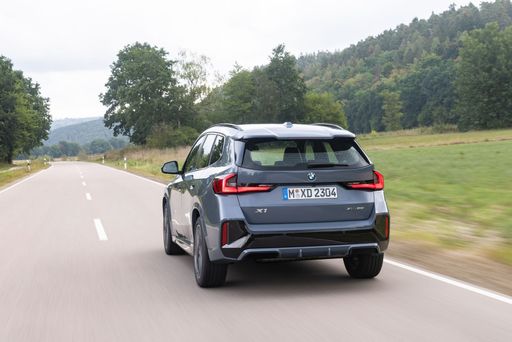 @ BMW Group Press
@ BMW Group Press
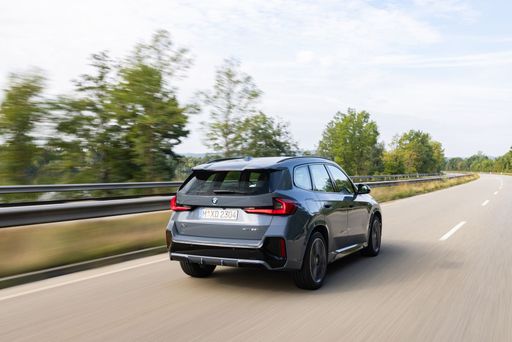 @ BMW Group Press
@ BMW Group Press
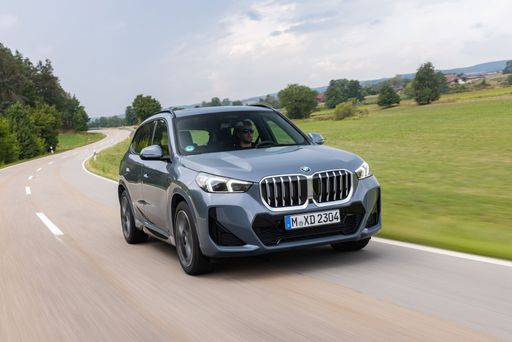 @ BMW Group Press
@ BMW Group Press
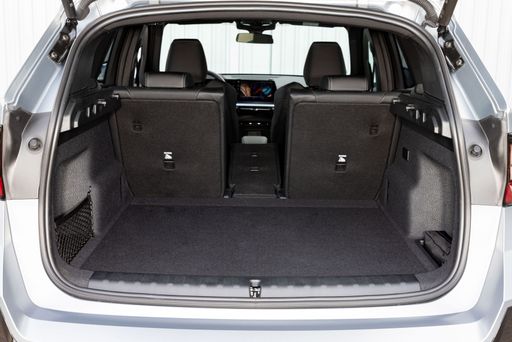 @ BMW Group Press
@ BMW Group Press
BYD Sealion 7
The Sealion 7 captivates with its striking design and impressive performance that appeals to both enthusiasts and casual drivers alike. With a focus on comfort and advanced technology, this model redefines the driving experience, making every journey enjoyable. Its sleek silhouette coupled with an innovative interior showcases the perfect blend of style and functionality.
details @ BYD Auto / BYD Global Media
@ BYD Auto / BYD Global Media
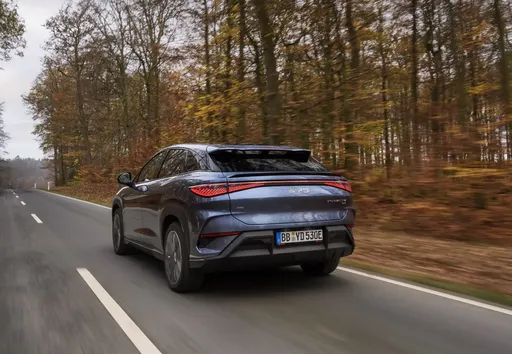 @ BYD Auto / BYD Global Media
@ BYD Auto / BYD Global Media
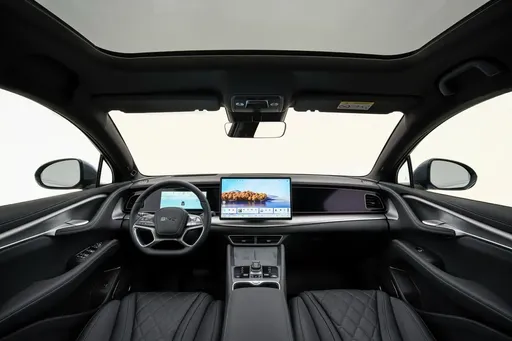 @ BYD Auto / BYD Global Media
@ BYD Auto / BYD Global Media
 @ BMW Group Press
@ BMW Group Press
|
 @ BYD Auto / BYD Global Media
@ BYD Auto / BYD Global Media
|
|
|
|
Costs and Consumption |
|
|---|---|
|
Price
38200 - 55500 £
|
Price
42800 - 52300 £
|
|
Consumption L/100km
2.5 - 7.7 L
|
Consumption L/100km
-
|
|
Consumption kWh/100km
-
|
Consumption kWh/100km
19.9 - 21.9 kWh
|
|
Electric Range
81 km
|
Electric Range
456 - 502 km
|
|
Battery Capacity
14.20 kWh
|
Battery Capacity
-
|
|
co2
57 - 175 g/km
|
co2
0 g/km
|
|
Fuel tank capacity
47 - 54 L
|
Fuel tank capacity
-
|
Dimensions and Body |
|
|---|---|
|
Body Type
SUV
|
Body Type
SUV
|
|
Seats
5
|
Seats
5
|
|
Doors
5
|
Doors
4
|
|
Curb weight
1575 - 1935 kg
|
Curb weight
2225 - 2435 kg
|
|
Trunk capacity
490 - 540 L
|
Trunk capacity
520 L
|
|
Length
4500 - 4505 mm
|
Length
4830 mm
|
|
Width
1845 mm
|
Width
1925 mm
|
|
Height
1622 - 1642 mm
|
Height
1620 mm
|
|
Max trunk capacity
1495 - 1600 L
|
Max trunk capacity
1789 L
|
|
Payload
490 - 500 kg
|
Payload
410 kg
|
Engine and Performance |
|
|---|---|
|
Engine Type
Diesel MHEV, Petrol MHEV, Petrol, Diesel, Plugin Hybrid
|
Engine Type
Electric
|
|
Transmission
Automatic
|
Transmission
Automatic
|
|
Transmission Detail
Dual-Clutch Automatic
|
Transmission Detail
Reduction Gearbox
|
|
Drive Type
Front-Wheel Drive, All-Wheel Drive
|
Drive Type
Rear-Wheel Drive, All-Wheel Drive
|
|
Power HP
136 - 326 HP
|
Power HP
313 - 530 HP
|
|
Acceleration 0-100km/h
5.4 - 9.2 s
|
Acceleration 0-100km/h
4.5 - 6.7 s
|
|
Max Speed
190 - 250 km/h
|
Max Speed
215 km/h
|
|
Torque
230 - 477 Nm
|
Torque
380 - 690 Nm
|
|
Number of Cylinders
3 - 4
|
Number of Cylinders
-
|
|
Power kW
100 - 240 kW
|
Power kW
230 - 390 kW
|
|
Engine capacity
1499 - 1998 cm3
|
Engine capacity
-
|
General |
|
|---|---|
|
Model Year
2024 - 2025
|
Model Year
2024
|
|
CO2 Efficiency Class
D, E, F, B
|
CO2 Efficiency Class
A
|
|
Brand
BMW
|
Brand
BYD
|
Is the BMW X1 offered with different drivetrains?
The BMW X1 is offered with Front-Wheel Drive or All-Wheel Drive.
The prices and data displayed are estimates based on German list prices and may vary by country. This information is not legally binding.
